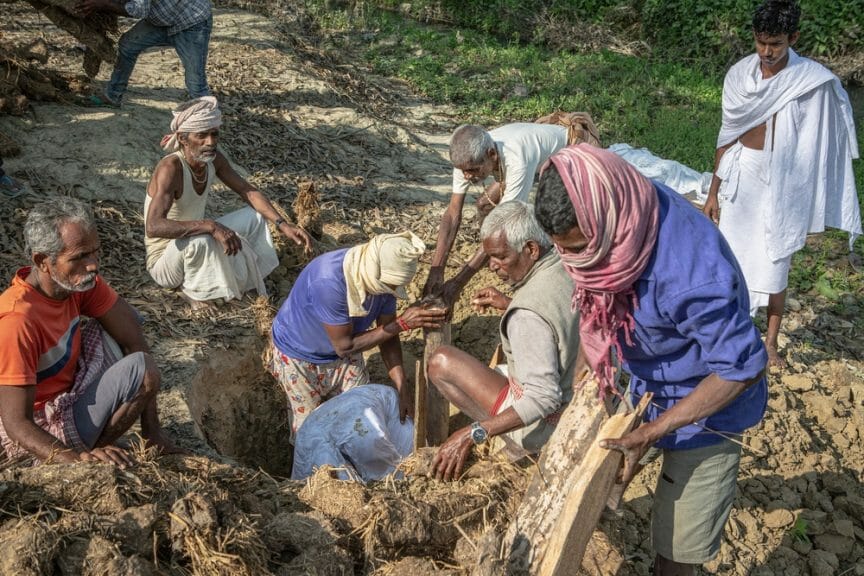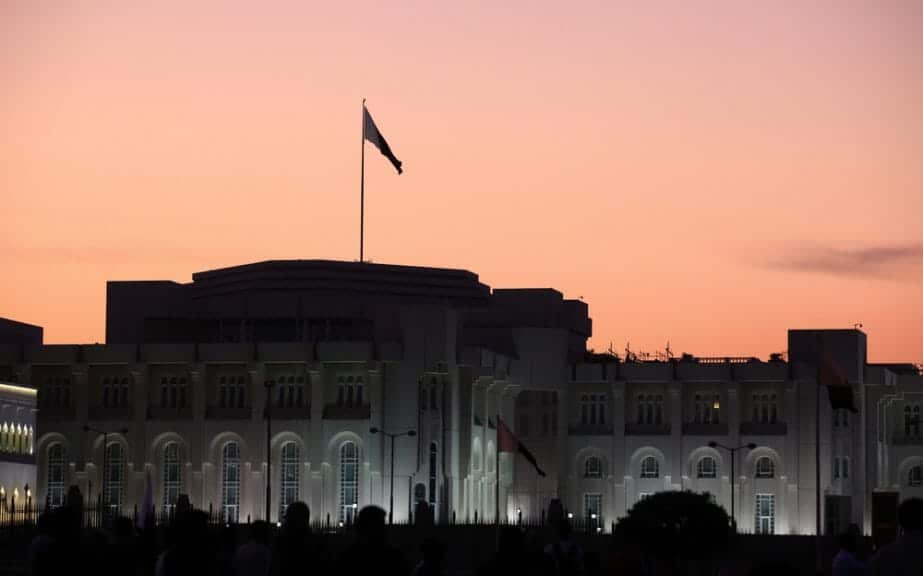Protests over the World Cup being hosted in Qatar this year continue to spread and amplify largely due to the country’s alleged human rights violations.
On October 4th, Paris joined a handful of other French cities that will not air the World Cup’s matches in public areas, otherwise called fan zones, during the month-long event. The move is a big statement from the French capital. Fan zones typically gather large crowds of fanatic supporters, with live broadcasts showing the fans erupting in elation when their country’s team scores. They have always been an essential part of world cup culture, and not having them is a declaration, to say the least.
But Paris added a caveat to its publically released statement on Qatar: The protest is over the way the event’s modeled, not the location. Paris’s Deputy Mayor, Pierre Rabadan, said in a statement on Tuesday that Paris will remove the fan zones:
“…firstly because of the environmental and social conditions regarding the event and this is not the model that we wish to promote for major events in Paris…. It doesn’t mean that we are calling for a boycott of the event…. I repeat this is not the trial of Qatar, we are questioning the model of this event.”
Pierre Rabadan / CNN

What the specific issues are with the conditions and model of the event was not made clear by Rabadan. Other French cities have been more explicit about what their cancellation of the fan zones is all about. In Lille, the city’s mayor, Martine Aubry, said that they have canceled fan zones because having the World Cup in Qatar was “nonsense in terms of human rights, the environment, and sport.” In Strasbourg, the city’s ecologist mayor, Jeanne Barseghian, noted:
“It’s impossible for us not to listen to the numerous alerts from NGO’s denouncing the abuse and exploitation of immigrant workers. Thousands of foreign workers have died on building sites, it’s unbearable.”
Martine Aubry / The Atlantic
Other groups have decided to speak out against Qatar and make their own statements of protest as well. Just last week, the Danish National Team’s jersey supplier, Hummel, decided to mute the team’s national badge and jersey features in protest of Qatar’s human rights violations. In an Instagram post, Hummel stated:
“We don’t wish to be visible during a tournament that has cost thousands of people their lives. We support the Danish national team all the way, but that isn’t the same as supporting Qatar as a host nation”
Hummel / Instagram
Qatar: A Conservative Country, with Allegations of Serious Human Rights Violations
In October 2021, Qatar held its first general election that elected 30 of its legislative council’s 45 members. But, an existing law excluded citizens whose grandfathers were not born in Qatar from voting in the election. The discriminatory law caused the election to receive only a 63.5% voter turnout.
In terms of foreign workers’ rights in Qatar, the vestiges of the kafala system have continued to plague many industries, even after the election of a new government claiming to be dedicated to ushering in labor reforms. The kafala system is a legal framework that allows local companies to employ foreign laborers through sponsorship, paying for travel expenses and providing housing for the foreign national. In turn, the foreign national forfeits any labor protections under Qatari law, leaving them vulnerable to exploitation and wage left. In most situations, foreign workers need permission to change jobs, end employment, or even leave the country.
With the new legislative council in place, many of these oppressive laws supporting the kafala system were legally reformed and rid of altogether. But in practice, things have looked different. According to Amnesty International, an NGO considered the key authority on global human rights, in 2021:
“Migrant workers continued to face sometimes insurmountable bureaucratic barriers and requirements when seeking to change jobs without the permission of their employers, even though permission was no longer a legal requirement.”
Amnesty International

The legislative council also raised the minimum wage, which companies have been slow to implement for migrant workers. Amnesty International notes:
“Despite the introduction of a new minimum wage, as well as measures to monitor payment of wages, migrant workers continued to fall victim to wage theft by their employers without effective recourse to justice.”
Amnesty International
Labor discrimination is only one area of abuse perpetrated by the Qatari government. Members of the media have been abducted and abused because of their dissent to the Qatari government’s transgressions. Amnesty International states:
“On 4 May, authorities forcibly disappeared Malcolm Bidali, a Kenyan security guard, blogger and migrant workers’ rights activist. They held him in solitary confinement for a month and denied him access to legal counsel.”
Amnesty International

Women also face much discrimination from the Qatari government. Under Qatar’s guardianship system, most women’s legal rights are given to a male guardian, usually a father, brother, or husband. Through this system, women are given little to no autonomy and authority over their own lives. On top of this, same-sex relationships and conduct are punishable by up to seven years in prison.
Competing Statistics Blur Actual Death Toll
One statistic both protestors and supporters of the Qatar World Cup will point to is the migrant death toll. Last year, The Guardian compiled data and found that up to 6500 migrant workers have died in Qatar over the last 11 years, with many of these deaths coming from World Cup stadium construction and the harsh working conditions foreign workers are subjected to. Amnesty International conducted a study in 2021 that interviewed families of the deceased workers, and several of them told horror stories of what their loved ones had been put through, working 10-hour days in 100+ degree weather.
On the other side, Qatari World Cup officials have given starkly different death toll estimates. In an interview with CNN last year, they reported only 3 deaths related to World Cup construction. This data has never been able to be verified by a third party, largely due to a lack of governmental transparency in Qatar and the country’s practice of not routinely performing autopsies. FIFA has backed the World Cup official’s death toll.
The lack of consensus around the immigrant death toll in Qatar has left both sides clinging to their own version of the story.

While both sides offer statistics that paint different pictures, one must ask: Does that even matter? The country already continues to discriminate against women, the LGBTQIA+ community, foreign nationals, and many others – expanding a resume that shows a host of human rights violations. For many people, that’s enough to protest Qatar for hosting an event founded upon freedom of expression and bringing people together. And really who can blame them?














